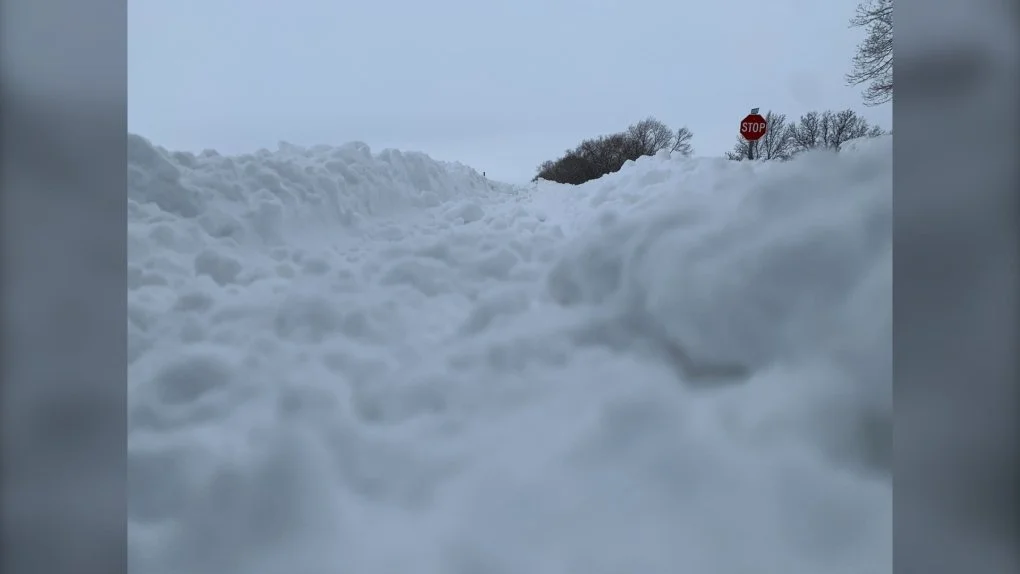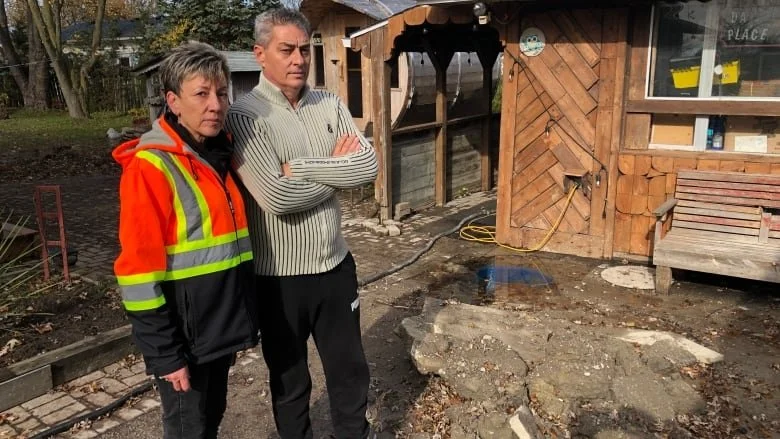West-central Alberta communities are assessing damage and making repairs as flood waters recede. In the town of Edson, 100 kilometres west of Edmonton, a state of local emergency ended Monday after a tumultuous two weeks of fire and flood.
Property owner learns a hard lesson on insurance against water damage
In early December, while the property was unoccupied, Morgan’s real estate agent phoned him to advise that the house had been damaged as a result of a burst water connection to a second-floor toilet. Co-operators investigated the claim and denied coverage. The company’s position was that there was no insurance coverage for water damage after the property was vacant for more than five days, and there was no insurance at all for any loss if the dwelling was vacant for more than 30 consecutive days.
Insurance Bureau of Canada Encourages Residents in Atlantic Canada to Prepare for 2023 Flood Season
As the warmer spring weather arrives in Atlantic Canada, rain coupled with snowmelt in parts of the region presents an increased risk of flooding. Insurance Bureau of Canada (IBC) is informing consumers about how they can prepare for the 2023 flood season by protecting themselves and their property from water damage. "As we've seen many times across the Atlantic Canada, flooding can cause extensive damage to your home and property," said Amanda Dean, Vice-President, Atlantic, IBC. "Being prepared for any severe weather event is important for your personal safety and financial security. Part of that includes mitigating any damage to your property when it is safe to do so."
Rising waters: Spring flooding and mould are major worries for Canadians
First Onsite Property Restoration, Canada’s leading property restoration company, marks the end of winter and first day of spring (next week, March 20) with the release of The Spring Melt, a survey that examines Canadians’ concerns, perceptions, and property readiness amid ever-changing weather patterns. Commissioned by First Onsite, the survey of more than 1500 Canadian adults found that three-in-five people are worried about the damage caused by severe rains and flooding (58%).
Okanagan cold snap leads to water damage
Unfortunately, sticking close to home doesn’t exempt you from the challenges of winter weather. Water damage has been an issue in B.C.’s Okanagan region this week as temperatures plummeted. Splatsin First Nation, near Enderby, had a crack form in its water reservoir due to the cold weather. Residents were told Thursday to fill and store water in case the crack led to water service being cut off.
One in three Canadians think their home insurance policies cover water damage
With severe weather becoming less and less of a rarity across Canada, home insurance is climbing up the list of things Canadians have to double-check. And yet a new survey has found that one in three Canadian homeowners mistakenly think their standard home insurance policy includes flood protection. It doesn’t. The Insurance Bureau of Canada recently revealed that severe weather insurance claims shot up 400% from 15 years ago. Most recently, hurricane Fiona tore through Atlantic Canada and left $660 million worth of insured damage in its wake, making it the most expensive severe weather event in the region.
IBC Cautions Residents in Atlantic Canada: Take steps to prepare for Hurricane Fiona
In anticipation of Hurricane Fiona, Insurance Bureau of Canada (IBC) is sharing the following tips and advice to help keep you, your family and property safe. "A hurricane can cause extensive damage regardless of its category. Being prepared for any severe weather event is important for your personal and financial security," said Amanda Dean, Vice-President, Atlantic, IBC. "We want to ensure that residents in Atlantic Canada are ready for strong wind or heavy rains that Hurricane Fiona may bring to the region. Even a significantly weakened hurricane can carry winds strong enough to cause widespread destruction."
Why many Canadians' homes aren’t protected against the threats of extreme weather
The past couple of years has shown us that extreme weather events — from devastating floods to extreme heat — are becoming the norm. But even in light of this and amidst a summer of sun and storms, many Canadians’ homes aren’t protected from the very real threat this kind of now-to-be-expected weather poses. According to Vice President of Claims at TD Insurance, Craig Richardson, a survey of Canadian homeowners conducted by TD Insurance in 2022 revealed that “just over half of Canadians (51%) either don’t have extended water damage coverage or don’t know if they have coverage, yet one in five Canadians have experienced water damage to their homes.”
As insurance claims pour in after Manitoba spring storm, here's what homeowners need to know
The water has receded and fans are blowing around the clock in Christina Beeusaert's East St. Paul basement. Her belongings are stacked to the ceiling and like many Manitobans, she is waiting to learn just how much the water damage will cost her. "It depends, once they start ripping the other room apart, how much water damage there is behind the walls and that," she told CBC News.
How to keep your home safe from water damage as the snow melts
After experiencing one of the snowiest winters to date in Manitoba, residents are facing a high risk of water damage this spring. According to CAA Manitoba’s Heather Mack, water damage is an issue every year in Manitoba, but this year there is “quite a large risk.” “This year, that extra snowfall put us in more of a vulnerable position for sure. Water damage is the leading cause for all property damage in Canada right now,” she said in an interview on Tuesday.
Protect Your Home from Flooding
Weather in Canada is getting warmer, wetter and stormier due to climate change. Extreme weather events that we used to experience twice a century are now expected to happen every six years. Did you know that since the late 1940’s, in Canada: Average temperatures have increased by 1.3 degrees Celsius; Average rainfall has increased by 12 per cent; and We experience an additional 20 days of rain each year?
Trailer park residents on the verge of losing their water if leaking pipe not found
About 130 residents in the Suncrest Trailer park in Lakeshore could have their water shut off as early as Thursday if the owners of the park don't find a leaking water pipe that has caused thousands of dollars in damage to a neighbouring property. "Apparently, no one can find this pipe. That's why blindly they began digging around the garage," said Pavlina Georgieva. Water began bubbling up from under the garage at her and her husband Georgi's house next to the trailer park on October 27. It comes from a pipe owned by the trailer park but despite several efforts no one has been able to locate the pipe.
Windsor Regional Hospital campuses see flooding amid heavy rainfall across Windsor-Essex
Windsor Regional Hospital's two main campuses have flooded due to heavy rainfall throughout Windsor-Essex. While water damage is of concern, no patient services have been impacted with the exception of the Cardiac Catheterization Lab at the Ouellette Campus, according to a media release. The lab is closed until Monday due to flooding in the basement area where equipment is stored.
'My entire community was under water': Most homes in Jean Marie River damaged during flood
Twenty-two homes in Jean Marie River have been damaged by water and contaminated with fuel after the Mackenzie River flooded the N.W.T. community on both Friday and Saturday nights, according to the community's chief. Chief Stanley Sanguez told CBC News the band office and the school — in the lower lying downtown area — were also affected. The community of fewer than 100 people only has 26 homes in it, he said. "The water went so high that it uprooted all the fuel tanks, you could literally smell diesel all over," he explained. "The fuel that got into the houses is going to embed right in the lumber. It [doesn't] matter how you wash it, you'll still have that smell." When the water came Friday night, it came quickly.
Water damage at TVDSB classroom sinks forces switch to sanitizer
Students returning to class this week at schools in the Thames Valley District School Board will notice a change in protocol: Hand washing at classroom sinks is now a no-no. The new rule is a result of water damage board staff noticed in December on the cabinetry that surrounds classroom sinks. Last fall, students were washing their hands frequently as part of protocols to curb the spread of COVID-19. Students were using the classroom sinks so much, the wood cabinetry was being stained and discoloured due to water damage.
















